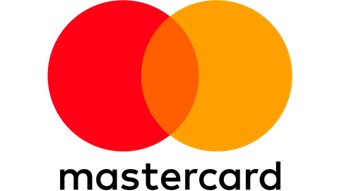Mastercard launches Payment Passkey Service in India

A few days ago, Mastercard unveiled the launch location for its new Payment Passkey service. This country is none other than India, which today boasts a rapidly developing payments ecosystem. Mastercard is taking advantage of this context to develop its online payment solution, bringing speed and security to Indian consumers and businesses.
FACTS
- At an Indian Fintech event, Mastercard announced the launch of a new authentication service for online payments: Mastercard Payment Passkey Service.
- The service will first be deployed in India for a pilot phase, before being offered more widely.
- For this project, Mastercard has brought together major local players in the payments ecosystem, such as Juspay, Razorpay and PayU, as well as merchants like Bigbasket and banks like Axis Bank.
- In concrete terms, the system uses tokenization to secure payments. When a user registers, two cryptographic keys are generated. The first is public and stored on the website's server, while the second is private and stored on the user's device.
- When making an online payment, the user first selects his or her Mastercard payment card. The system then requests biometric authentication from the user, and validates whether or not the keys are compatible. If they match, payment is authorized.
- Mastercard expects to start rolling out the system worldwide within the next few months.
CHALLENGES
- A step forward in security: Mastercard describes the new service as highly secure. Its operation eliminates several elements used by fraudsters. Firstly, tokenization protects banking and personal data, limiting the risk of data leakage. If the token is compromised, it is unusable, as it carries no important information. Secondly, Payment Passkey uses biometric authentication to avoid the risks associated with using a password, such as forgotten passwords or data leaks. It's also an alternative to one-time passwords, which are very practical but increasingly insecure due to phishing methods developed by fraudsters.
- Streamlining online payments: Passkeys also bring benefits for consumers and merchants alike. Consumers no longer need to enter their bank details. This makes the payment process much smoother and more secure. This is also a positive point for merchants, who will benefit from a drop in the number of refused payments and abandoned shopping baskets.
- High standards and security: Mastercard's service complies with a number of standards, including EMVCo, the World Wide Web Consortium and FIDO, of which Mastercard is a member. The aim of the FIDO Alliance is to promote the development of solutions that are alte
MARKET PERSPECTIVE
- The Indian payment industry is expanding rapidly, and the launch of Payment Passkey is an opportunity for Mastercard to support this growth with a highly secure solution. India is not immune to the global problem of fraud, and is facing an explosion in the number of cases of online payment scams. Mastercard's Indian partners are therefore keen to benefit from the solution.
- Payment leader Visa also seems interested in passkeys, as last May it announced its intention to roll out a solution called Visa Payment Passkey Service, also based on FIDO standards. However, Visa has not communicated on the progress of the project since this announcement.
- Mastercard's clear objective is to tokenize exchanges on a global scale. According to the scheme, the advantages are numerous and justify the rapid shift of the payments ecosystem towards this type of technology. While this position is justified by a significant reduction in fraud risks, it is also a way for Mastercard to show that the card still has a place in the future of payments, despite the rise of open banking and other alternative payment solutions.
